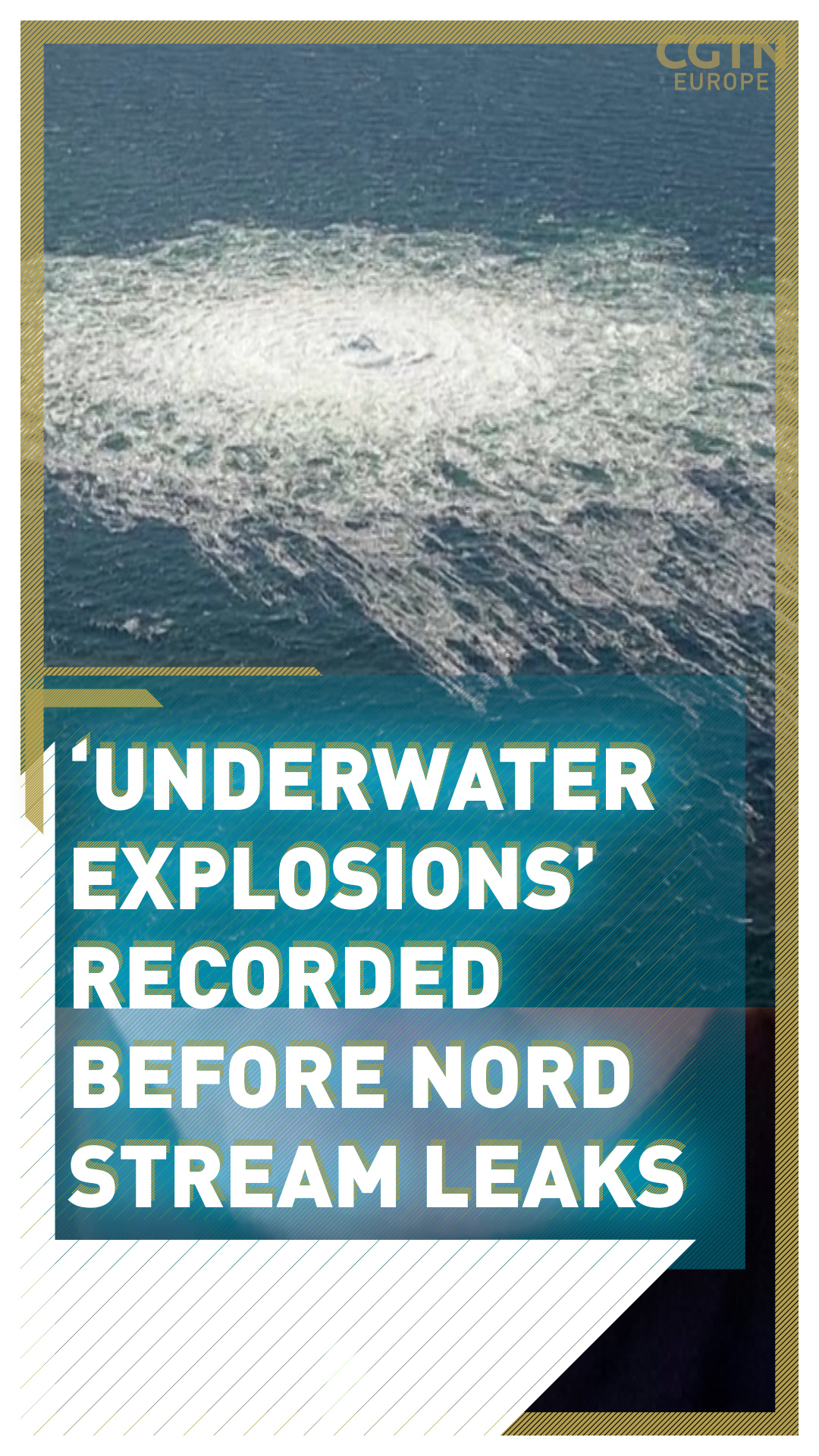
This handout picture released on September 27, 2022 by the Danish Defence Command shows the gas leak at the Nord Stream 2 gas pipeline off the Danish Baltic island of Bornholm. /Danish Defense/AFP
This handout picture released on September 27, 2022 by the Danish Defence Command shows the gas leak at the Nord Stream 2 gas pipeline off the Danish Baltic island of Bornholm. /Danish Defense/AFP
The theory that the multiple ruptures in the Nord Stream 1 and 2 gas pipelines that run from Russia to Germany were part of a sabotage plot is growing. A gas leak from the Nord Stream 2 pipe was detected on Monday evening near the Danish Island of Bornholm after the pressure dropped significantly in one of the two tubes.
Danish authorities have since detected what they say are three leaks in both Nord Stream lines. The ruptures in the Nord Stream 1 pipe have been found in both the Danish and Swedish sections of the tube, while the leak in Nord Stream 2 is in the Danish section.
All the leaks are concentrated in the area around Bornholm.
READ MORE
The life and times of Queen Elizabeth II
Global leaders pay tributes to UK monarch
Mid-Autumn Festival poetry
A Swedish seismologist at Uppsala University says data recorded before the gas leaks were revealed shows two explosions that he believes are "highly likely" to be man-made.
Peter Schmidt said, "the reason why we are fairly confident that these are explosions is mainly the amount of energy released and the short duration over which this energy was released. Had it have been some type of collapse, that is typically [over a] more extended time," in an interview released by AFP.
01:09

The company which operates the gas transit network say it is unclear when the system will work again. Danish energy authority Energinet said that breaks in undersea lines were extremely rare and has raised its alert level to amber, the second highest.
Talk of sabotage has been rife, with German newspaper The Berlin Tagesspiegel quoting a source as saying, "Our imagination no longer gives us a scenario that it is not a targeted attack."
German Green party Member Jurgen Tritten has also been quoted as saying he assumes a "violent disturbance" occurred. The German Federal Ministry of Economics refused to get drawn into the matter, saying, "We do not participate in speculation."
'Absolutely unprecedented situation'
Kremlin Spokesman Dmitry Peskov has revealed that Moscow is considering the possibility that the pipelines were deliberately ruptured.
"Now, no variant can be ruled out," Peskov told the Russian Interfax news agency. "Obviously, there is a destruction of the line. And what is the reason for it? You cannot rule out any variant until the results of the investigations emerge."
Moscow is seeking to get to the bottom of what caused this. "This is an absolutely unprecedented situation that needs to be clarified quickly," said Vladimir Putin's spokesman.
Holding Europe's gas market to ransom
Meanwhile, Poland's Deputy Foreign Minister Marcin Przydacz has accused Russia of being behind a false flag attack on its pipeline.
"Unfortunately, our eastern neighbor is constantly pursuing an aggressive policy. If it is capable of an aggressive military policy in Ukraine, it is obvious that provocations cannot be ruled out, even in the sections that are in Western Europe," said Przydacz.
As of Tuesday afternoon, both the company operating the pipeline and the authorities in Germany have maintained that they do not know what caused the drop in pressure or the leaks detected in both Nord Stream Pipelines.
Nord Stream 2 never went into operation after it was finished. However, it was filled with gas in its final testing and certification phase. Nord Stream 1 provided gas to Germany until the end of August when Russian state energy giant Gazprom stopped deliveries partly because of maintenance and then altogether due to an oil leak at the Russian end of the system.
Western states have said that the justification is a pretence to try to hold Europe's gas market ransom.
Video editing: Butchy Davy

